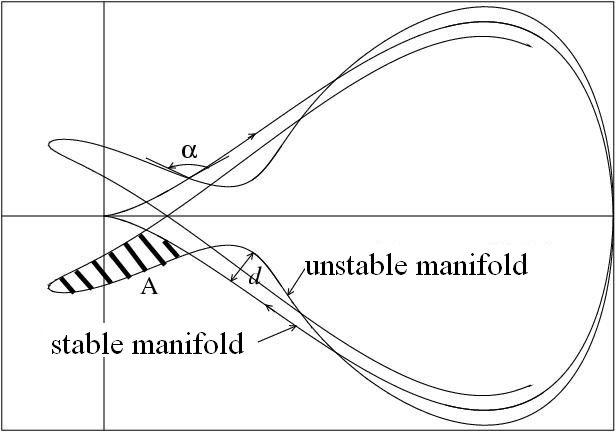self help jank
[self draft I wrote this while in Utah and revised it while in Utah.
a precursor
This is a draft piece that I do not really know what to do with. I wrote it in a day while sitting in Utah because I was tired and wanted to get into the writing flow state.
If you read this, you will learn little bits and pieces of things I have seen. Much of this feels more descriptive than focused on a singular idea. Specifically the section on Byung-Chul Han feels weak. My selection of bits and pieces reads more like a reading journal rather than deep analysis as of now.
I know roughly why I’m writing this: it’s to think about what Marvit’s perception of my style means for myself.
Also, some part of me might want to understand analytical philosophy, and how much effort I should be putting into it on a weekly basis.
Anyway, to start, what is the point of all the maxims?
Worthwhile to read Bukowski’s Genius Of The Crowd and the following quote first:
Beware of thinkers whose minds function only when fuelled by a quotation. Emil Cioran

a simple short argument
I’m explicitly skipping over the obviously religious ones, because, well, those are loaded with a lot more information and would require its own time and thought.
There are many accounts on social media platform A that simply take screenshots of other social media platforms B, C, D, X, and crosspost them on A. This practice is usually harmless and funny (I met someone at Oxford who did this), though if it’s art, you definitely should reference the artist.
However, there are also examples where people take specific highlighted portions of classical literature, poetry, clips from shows, etc. Which seems just as innocuous at first glance.
But, like, would you crop the Mona Lisa to only her eyes (yeah, probably, it would be kind of cool). There are obvious differences between the mediums (textual/visual), but this question then deals with the basic problem of medium-specific context.
So, when we take excerpts from texts, we are boiling down life philosophies into their marketable slogans [1]. Existentialism is now existence precedes essence [2], Buddhism is now to lose all worldly desire. These are what are cited in proper academic papers with abandon [3]…
But… that loses context!
It would be akin to me telling you a math result being true, smiling, and walking away. You can choose to shrug, continue eating your falafel wrap. But this usually hides all the difficulties under the rug, like tricky equality cases, etc.
In my opinion, this motivates the existence of proverbs a lot. The sentence itself is the context! You shouldn’t need a 10 page essay to get out of bed in the morning. 10 words is enough.
byung-chul han
Wait, did I just write in a way to force something to be clearly true? Was I… declarative? Was I leading you somewhere?
.jpg)
I’ve known about Byung Chul-Han for a time. A friend of mine (who is linked in this article), said that he became much more okay with his writings after he acknowledged him as a “poet rather than a philosopher.” There is probably ~some wordcel-ing going on between the two practices, but a good number of others have a similar take.
Anyway, he’s able to depict modern day feelings in simple words, which is somewhat nontrivial. I would guess it’s because he doesn’t feel the need to write for any specific (academic) audience, to overload phrases with longer and longer words made up in the past few decades. I believe there’s also a quote wherein he calls poems “magic ceremonies of language” where “the poetic does not produce, in poems we enjoy language itself.”
The quote that has stayed memorized in my mind for a few years now was from an interview:
Why do you write a 1,000-page book if you can enlighten the world in a few words? A 1,000-page book, which has to explain what the world is about, perhaps cannot express as much as a single haiku can.
Small tangent, but it’s incredible that so much of South/East/South-East Asia have their own “short” poetic forms. Haiku, Gushi, Lục bát, Sijo, Dwipadika to list very few. Continuing.
He explicitly writes in a “this-is-so” way, which simultaneously makes it easier to argue for and against him. I dunno. Literature is hard and you must keep track of the author’s axioms, so it is nice that he writes them on full display.
I would write a critique of him here, but that is not the main focus of this piece. Rather, the most clear-cut critique of Hans online is probably Wark’s Shanzai Theory. TL;DR if you simplify things down too much into binaries it kinda sucks [4], and you should challenge some norms from time to time. I am simplifying here. I do not feel like a challenger in this essay.
So, is simplicity good?
is it all just pretty words
Did you know that the name of someone who studies proverbs is a paremiologist?
I have no idea who chose that name. But it’s surely what Mieder is, after writing the Proverb Handbook. One of the (soft) definitions of a proverb he brings up is:
[a proverb] expresses what is apparently a fundamental truth-that is, a truism,-in homely language, often adorned, however, with alliteration and rhyme.
We are getting to Lachlan’s agniv-core writing style here!
I’m brought back to early primary school where you memorized things with mnemonics, and it’s exactly the same. These themselves are not usually seen as proverbs, but Mieder is of the type to say ‘well, definitions are hard, and you have a good vibe sense after reading this far, hopefully’ (don’t worry, he actually goes through many, many definitions used in practice).
So far, I don’t think I’ve made meaningful progress on the question of “why proverbs?”
Thankfully, Mieder explains the effect of a proverb: they “can at times hit people like a hard brick with their continuous claim of moral authority and didactic intent.”
We’re getting back to that Hans style of writing, the ‘this-is-so’. Proverbs are nice because they summon this rough amount of moral authority with very little effort.
How does one quantify the effort? I’m not totally sure, but a nice path would be to look at the reference to Norrick’s How Proverbs Mean, which explains the notion of the ‘kernel’ of a proverb being something like the ‘minimum text needed to reconstruct it.’ Think about modern day meme formats such as “AAA on my BBB till I CCC” and “I’m the XXX alive, YYY, you’re clearly XXX-er.” Those are proverbic kernels [5]!
One could in fact argue that these madlib-esque kernels are the proverbs themselves, with the more (funny) memes being kernels with nonsensical madlibs.
Ultimately, we like them!
quick recap
So, we like simple short excerpts because of their ease of remembrance (mnemonic structure), being self-reliant (no external context needed), and their moral authority.
Some people write their own new ones. The one that I stumbled upon while writing this was Geary’s own list, with my favorites being:
Young people should picnic in active volcanoes.
You must understand a thing completely before you can safely ignore it.
To get your foot in the door, first get it out of your mouth.

I do think this makes it very clear that not all proverbs are going to stick with people. And that’s fine! The language I know and love is not the language you know and love.
Is “I love you” a proverb?
self help?
The title of this is about self-help books. What were the maxims for?

Ultimately, this was just a long-winded way for me to get at my thoughts on Siver’s How To Live. I like his essays a lot and his life story [6]. He also writes in the Hans ‘this-is-so’ style, and also considers himself a slow thinker, but is much more a blogger than an essayist in my mind (ah! another word-cel that I will not think about).
I texted some friends that I wanted to sit down and read and maybe memorize some bits and pieces. They then sent the chapter titles back and asked if it truly said anything.
This is why I started with an explanation of proverbs. See the list below:
Be independent, Commit, Fill your senses, Do nothing, Think super-long-term, Intertwine with the world, Make memories, Master something, Let randomness rule, Pursue pain, Do whatever you want now, Be a famous pioneer, Chase the future, Value only what has endured, Learn, Follow the great book, Laugh at life, Prepare for the worst, Live for others, Get rich, Reinvent yourself regularly, Love, Create, Don’t die, Make a million mistakes, Make change, Balance everything, Conclusion
Are these proverbs? Well, probably.
Imagine each tagline as being the axiom, some of those 10 words you whisper to yourself as you get out of bed in the morning.
now wait a second what are the
Yeah, there’s a lot of different life philosophies he’s pointing out here.
Most reviews on the main page are of the format “well, none of these are wrong, and that makes me… wistfully happy for the future.” [7]
You can pair a lot of these taglines and get an inherent contradiction. This is inherently the strength of Siver’s piece, that he is giving you 25+ polemics that are all somewhat true in a vague sense and asking you to pick and choose the truest bits, allowing you to choose contradictory ones if needed.
The test of a first-rate intelligence is the ability to hold two opposed ideas in mind at the same time and still retain the ability to function.
F. Scott Fitzgerald
But also, with a surprising throwback to Ellison’s Invisible Man, see the following excerpt. A first-rate test of intelligence is that of hope in spite of it all, perhaps.
Contradictions give way to balance.
Granted, I will focus on the ‘obvious’ painful section. Do nothing.
doing something about doing nothing
It starts out calm, stating that most commandments and laws are about what not to do, and goes into examples of what happens if you try.
It’s somewhat related to the Buddhist tagline from before about losing worldly desires. He writes to “change your need to change things.”
But the argument for me falls short when he says not to hope. Then it picks back up when he states that silence adds to the importance of your own speech.
By the end of reading it, it’s significantly easier to like it. “Marriage doesn’t make you secure,” “You don’t need a beach to feel tranquility.”
This feeling that parts of it are off and some of them are on are captured by the last line.
Doing nothing is how to live and how to die.
all the maxims
Other than that section, I find it kind of hard to write a book review for it. Not because my analysis itself is orc-ish (see excerpts), but because of the ‘this-is-so’ style. You simply agree with it or don’t, and which way you land depends on the life that you have lived. Some bits for me are… wow, super bad. It’s very clearly a polemic. But others are incredibly good.
Instead, I think I’ll pick out the excerpts that I liked. If you want to know why I liked them, email me, though I’ll put some bits and pieces there.
Time Related
Life is full of time. How should you spend it?
Quit a harmless habit for a month, just to prove you can.
(Be Independent. Reminded me of Erdős)
If you knew you’d go blind tomorrow,
how intensely would you look at the world today?
(Fill your senses)
Greenland used to have grass,
but early settlers let their sheep graze,
and it never grew back.
A few short-term decisions can lead to centuries of destruction.
(Think super-long-term. Greenland is insane topographically)
So, ultimately, mess around, but think about the future a bit. Further reading from Tang in Life is Gradient Descent.
Personal Related
I have done a few community based endeavours and they were all good. How do you connect with people?
If you sincerely appreciate someone,
and really engage with their interests,
you will become friends. (For Others.)
A sincere compliment can put a lot of fuel in someone’s tank.
(For Others.)
But ideally, when with others, be the same person you’d be when alone.
(Love.)
But nobody will save you. You have to fill those gaps yourself.
(Love.)
Become self assured. Be good vibes.
Locking In Related
Self explanatory.
If you haven’t decided what to master,
pick anything that scares you, fascinates you, or infuriates you.
(Master something. Combinatorics)
Focus fully on whatever fascinates you now.
(Do whatever you want now. Combinatorics)
People say they’re not doing the work because it’s hard.
But it’s hard because they’re not doing the work.
(Pursue Pain. Seinfeld has a joke about the structure of this.)
Don’t wish for good luck. Good luck makes you complacent.
(Pursue Pain. Jesus College, the students would say "good skill" before exams.)
Calling yourself creative doesn’t make it true.
(Create.)
Internalize it. Don’t expect to just look it up when you need it.
(Learn.)
Win by not losing. (Don't Die.)
The things that you feel emotions about are probably the things you should put more effort into. Make sure that you know why you have those emotions, even if they’re the ones telling you that it’s hard. See the writing advice from jean.land.
Emotions Related
Alexithymia is a neurological condition that makes it hard for people to communicate with their own emotions, occurring at about 10% in the total general population.
Practice feeling emotions intentionally,
instead of using actions to create them.
(Do Nothing. Many conversations with https://daystareld.com/)
Befriend discomfort so that you’ll never fear it.
(Prepare for the Worst.)
Humor is the spirit of life — a sign of a healthy,
vibrant mind and soul. (Laugh at Life.)
Learning is loving. (Love.)
Flirting and romance is like eating dessert first.
After you come down from the sugar rush,
you get to the more nourishing part of the meal. (Love.)
Live, laugh, and maybe even love. Never shy away from the bad bits, for you evolved to have negative emotions for certain reasons. Figure them out!
World Related
You are one with a world and that’s crazy. Maybe in our lifetimes we will change this philosophy of being earth-centric to being universe-centric.
In Icelandic, the word for “idiot” means
“one who has never left home to journey abroad”.
(Intertwine with the world. Linguistic tidbits!)
Document everything, or you’ll eventually forget it.
(Make memories. Reminds me of an old essay I wrote.)
Pioneers have a massive impact on the world
because their stories help people do things
they wouldn’t have dreamed of otherwise.
(Be a famous pioneer. Ruriko Yoshida)
Before trying to improve something old,
find out why it is the way it is.
Never assume people in the past were ignorant.
(Value only what has endured.)
When you’re gone, your work shows who you were.
(Create.)
The world is big. Keep track of it! Be active in it!
Practical Advice Related
Money.
The world is full of money.
There’s no shortage.
So capture the value you create.
Charge for what you do.
It’s unsustainable to create value
without asking anything in return.
Remember that many people like to pay.
(Get Rich. Very American!)
You only need to get rich once.
(Get Rich.)
Jump into action without hesitation or worry.
(Make a Million Mistakes.)
It is surprisingly powerful to realize you only need to get rich once.
Balance Related
This is actually a section within his book by itself, but I thought I would put a few together.
You think you want more choice and more options.
But when you have unlimited choice, you feel worse.
(Commit. US College course catalogs are insane!)
Change your preferences, opinions, and usual responses.
Try the opposite of before. (Reinvent yourself regularly.)
You have different sides to your personality, with conflicting needs.
Instead of ignoring one, make sure you balance them.
Balance time with others and time alone.
Balance your need for stability with your need for surprise.
Balance input and output,
consumption and creation,
stability and adventure,
body and spirit.
Your opposing needs become each other’s remedy. (Balance Everything.)
Balance human nature. (Balance Everything.)
Extremes exist everywhere, even within flexibility. But, you should definitely learn how to do a pistol squat and the crow position. Balance is a secure feeling.
Miscellaneous (Related)
These ones I just like.
Need destroys love. (Love.)
Be surprised by something every day. (Learn. https://xkcd.com/1053/)
Good advice.
shoutouts
A lot of his advice sometimes follows the framework of “Set up an LLC to handle creative/change-making things so that you can profit and stay alive.” A lot of this practical advice is also captured in Graham’s What You’ll Wish You’d Known.
Special shoutouts:
- to most of Intertwine With The World.
- I have my own thoughts on travel, strangers, etc, but the simple truth is you just. Have to get out there. I will possibly collect these into their own post, but the writings are from a much younger time.
- to some of Make Memories.
- Annoyingly video is expensive to store data wise.
- to the way that he wrote Let Randomness Rule + Chase The Future
- I like it, but I wouldn’t have written it that way.
- to Laugh at Life.
- to all of For Others.
- to all of Love.
- to all of Create.
In my mind, I spent the past year properly becoming an adult (at time of writing I am a few months away from 19). Some of this advice feels like the transition into adulthood, especially choosing to Master Something.
is love a proverb?
When I write letters for other people, I usually struggle, because no one wants to write just the conventional proverbs. Have a great time, you made it better, etc.
Proverbs, when overused, lose their meaning, in the same way that saying the same word many times degrades it into noise.
So I would give words and phrases that reminded me of them. Epithets I saw them in. Lerp. Blinking. Petrichor. Separatrix.

I wrote love letters for my friends, and some wrote them back. I do not have them on me (memorized/some are paper), so it does not feel fair to put quotes from the ones I do have on hand. However, I will put one:
Despite always being on a Quest, Agniv is incredibly good at making his loved ones feel loved.
And so I have won, if only a little.
So make your own proverbs. Your own aphorisms. Acknowledge when you invoke a polemic by smiling like crazy. And live.
how to live
Get rich once. Love and Create for Yourself and Others. Travel, to Intertwine with the World. Do not accumulate Ego, but Make Memories. Make sure to Laugh at Life.
It’s a little more than 10 words. But it gets the job done.
conclusion
I don’t think language is that deep unless you make it so. The things we choose to say can say a lot. Concision is good.
footnotes
Imagine ending this by saying concision is good and then having. A yap session in the footnotes. Yikes. I do not currently have good footnote integration on my blog, so I apologize!
[1] - Looking back at this, I wonder if it’s just the axioms that are paraded, but not inherently the results. I don’t think anyone goes around calmly saying V=L, or EATS (every Aronszajin tree is special). Barring maybe the logicians.
[2] - One of the first philosophy essays I read and loved was Barad’s Blade Runner and Sartre, because it proved to me that art was not dead. It’s a nice blend of analytical philosophy (Sartre’s view on Descarte), a slight touch of computation (Turing), and literary analysis (the VK test, visually human, etc.). A recent essay that came out on my birthday from Shanahan, called What does it mean to be Human?, does mention BR’s director distancing “himself from the idea that the film was ever intended to have any philosophical significance whatsoever,” lol.
[3] - Though, you, as the reader, should critically engage with it, and therefore should probably go into the text! I somewhat disagree with Gavin’s take on ignorance as advice for people who have the time/funding to be able to look at it all (usually young people!). For people in grad school… well, I’m simulating that right now, but that’s another story.
[4] - This made me think about the The Hedgehog and the Fox essay by Berlin, specifically the line “Of course, like all over-simple classifications of this type, the dichotomy becomes, if pressed, artificial, scholastic, and ultimately absurd.” We say this so many times in life because… simple!
[5] - The mathbrain and csbrain in my head kind of dislikes this utilization of kernel, but I digress. Also, any modern day meme-researcher would probably benefit from reading more about paremiology because it seems like the same pattern, and vice versa.
[6] - A friend of mine really likes rats. So does Sivers now. He also was a California native before moving to New Zealand, and I love islands.
[7] - Not all of them, see Zachar’s “Mr. Sivers always has interesting points to make. His observations are always uplifting.”
PS - Most of the links here are formatted with respect to Swartz’s advice.
PSS - You should try and memorize your favorite poems. Does wonders for the brain. The longer the harder sometimes the better. Do it for yourself! You can do it for others too, and even win money (I have never been to Berkeley’s Poetry Slam but it looks so cool).
revisions
As I said, this was in a draft format. This means it is subject to change, and if you have things to point out about the analysis (where I am wrong, how to improve it, etc) or you have questions, you can simply email me. Thanks!

